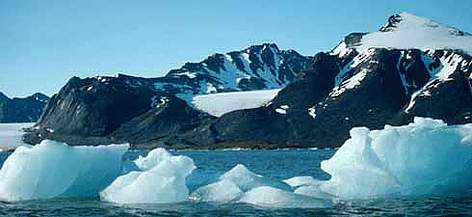- Home
- Medical news & Guidelines
- Anesthesiology
- Cardiology and CTVS
- Critical Care
- Dentistry
- Dermatology
- Diabetes and Endocrinology
- ENT
- Gastroenterology
- Medicine
- Nephrology
- Neurology
- Obstretics-Gynaecology
- Oncology
- Ophthalmology
- Orthopaedics
- Pediatrics-Neonatology
- Psychiatry
- Pulmonology
- Radiology
- Surgery
- Urology
- Laboratory Medicine
- Diet
- Nursing
- Paramedical
- Physiotherapy
- Health news
- Fact Check
- Bone Health Fact Check
- Brain Health Fact Check
- Cancer Related Fact Check
- Child Care Fact Check
- Dental and oral health fact check
- Diabetes and metabolic health fact check
- Diet and Nutrition Fact Check
- Eye and ENT Care Fact Check
- Fitness fact check
- Gut health fact check
- Heart health fact check
- Kidney health fact check
- Medical education fact check
- Men's health fact check
- Respiratory fact check
- Skin and hair care fact check
- Vaccine and Immunization fact check
- Women's health fact check
- AYUSH
- State News
- Andaman and Nicobar Islands
- Andhra Pradesh
- Arunachal Pradesh
- Assam
- Bihar
- Chandigarh
- Chattisgarh
- Dadra and Nagar Haveli
- Daman and Diu
- Delhi
- Goa
- Gujarat
- Haryana
- Himachal Pradesh
- Jammu & Kashmir
- Jharkhand
- Karnataka
- Kerala
- Ladakh
- Lakshadweep
- Madhya Pradesh
- Maharashtra
- Manipur
- Meghalaya
- Mizoram
- Nagaland
- Odisha
- Puducherry
- Punjab
- Rajasthan
- Sikkim
- Tamil Nadu
- Telangana
- Tripura
- Uttar Pradesh
- Uttrakhand
- West Bengal
- Medical Education
- Industry
Micro organisms in Polar Regions may prove vital for cancer treatment

A new research by Cryobiologist Shiv Mohan Singh, also a a senior scientist at the National Centre for Antarctic and Ocean Research in Goa provides a vital clue to treat cancer in the harsh environments of the polar regions, with the help of micro organisms found there.
Shiv Mohan Singh, was also a member of India's first expedition to the Arctic in 2007, and has further highlighted the fact that organisms that survive in extreme climatic conditions such as the polar regions; survive with synthesise molecules that help them adapt.
The Micro-organisms that thrive in the harsh environs of the polar regions may open up new avenues for cancer treatment, the scientist is reported to have said.
"Useful substances such as antioxidant compounds, cold tolerant enzymes may be applied in healthcare, agriculture and industry," Singh, a senior scientist at the National Centre for Antarctic and Ocean Research in Goa, told IANS.
One such substance called 'thelebolan' has been extracted from an Antarctic fungus by a team of scientists including Singh and collaborator Satyahari Dey, of the Indian Institute Of Technology, Kharagpur.
Singh said thelebolan has potential anti-cancer properties since it could stall tumour cell growth and induce cell death in cancer cell lines.
Similarly, bacteria from Arctic glaciers have been found to produce anti-freeze proteins as their own survival mechanism. The proteins could be applied in the cryo preservation of blood and organs, in the food industry, or to prevent the formation of plugs in oil and gas pipelines.
"There is a lot of scope from bio-prospecting in the polar regions and we have to tap the region's potential since incidence of cancer has increased and spectrum of cancer-prone organs is changing each year," he added.
Shiv Mohan Singh, was also a member of India's first expedition to the Arctic in 2007, and has further highlighted the fact that organisms that survive in extreme climatic conditions such as the polar regions; survive with synthesise molecules that help them adapt.
The Micro-organisms that thrive in the harsh environs of the polar regions may open up new avenues for cancer treatment, the scientist is reported to have said.
"Useful substances such as antioxidant compounds, cold tolerant enzymes may be applied in healthcare, agriculture and industry," Singh, a senior scientist at the National Centre for Antarctic and Ocean Research in Goa, told IANS.
One such substance called 'thelebolan' has been extracted from an Antarctic fungus by a team of scientists including Singh and collaborator Satyahari Dey, of the Indian Institute Of Technology, Kharagpur.
Singh said thelebolan has potential anti-cancer properties since it could stall tumour cell growth and induce cell death in cancer cell lines.
Similarly, bacteria from Arctic glaciers have been found to produce anti-freeze proteins as their own survival mechanism. The proteins could be applied in the cryo preservation of blood and organs, in the food industry, or to prevent the formation of plugs in oil and gas pipelines.
"There is a lot of scope from bio-prospecting in the polar regions and we have to tap the region's potential since incidence of cancer has increased and spectrum of cancer-prone organs is changing each year," he added.
Next Story


